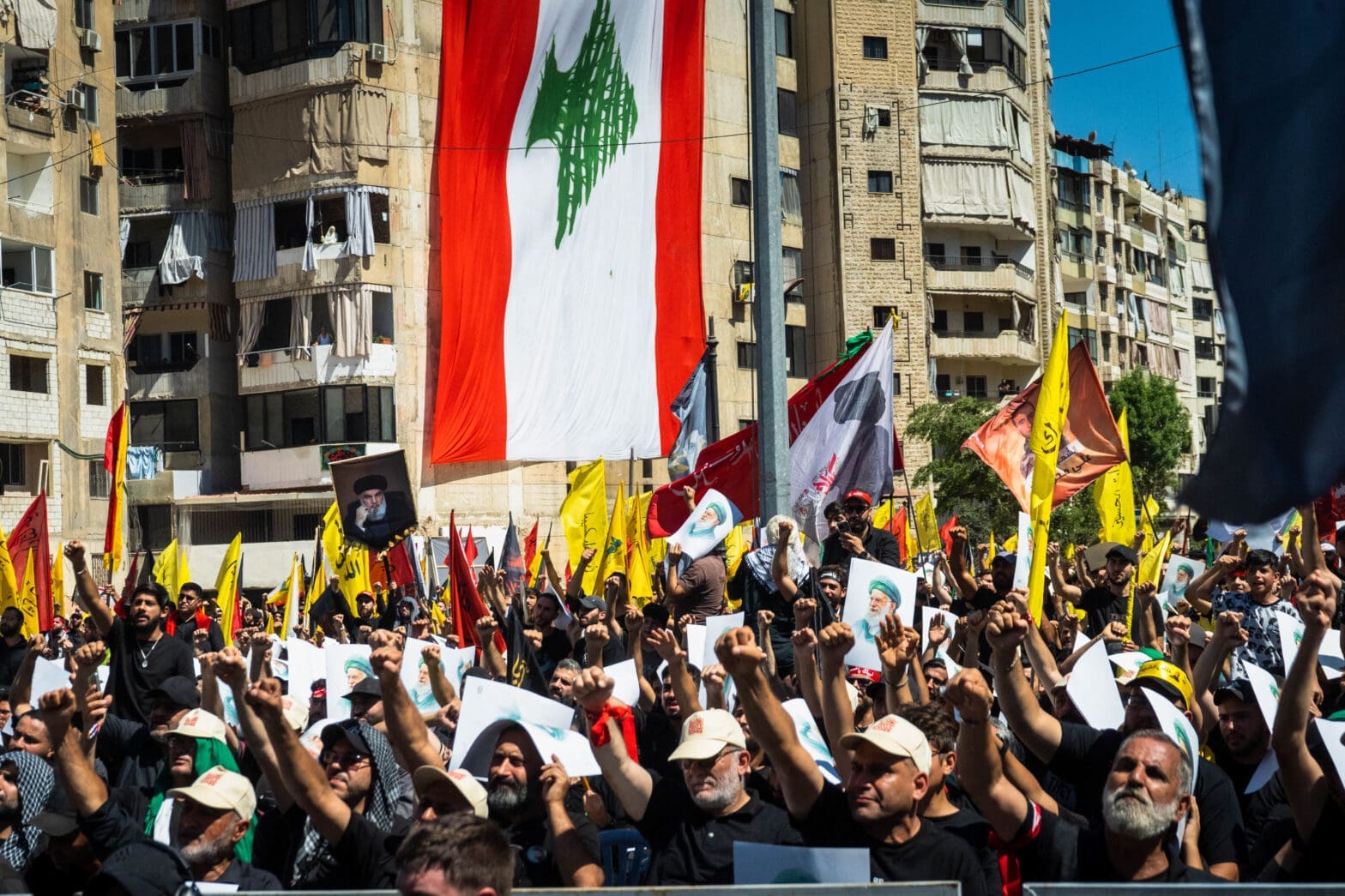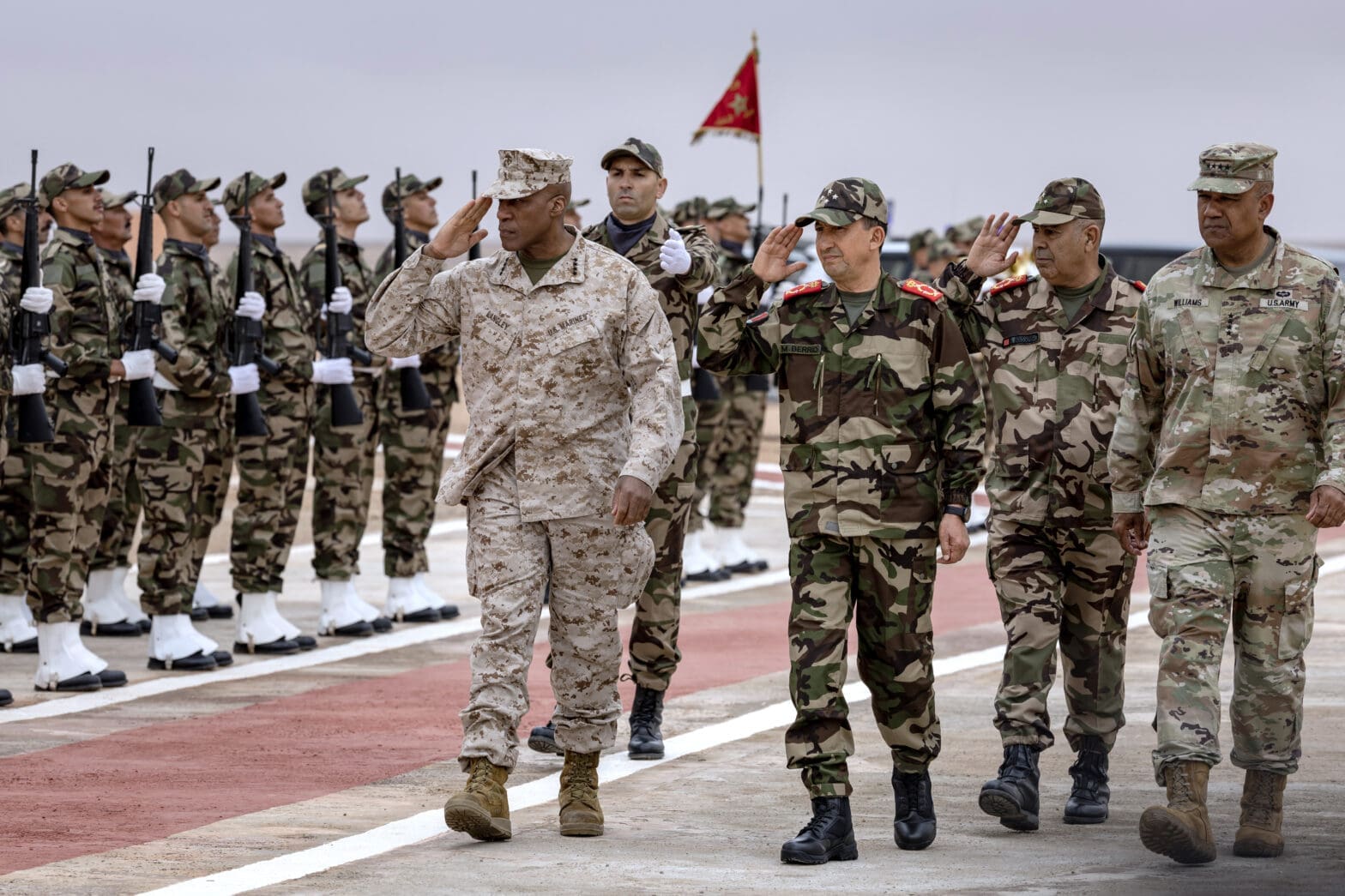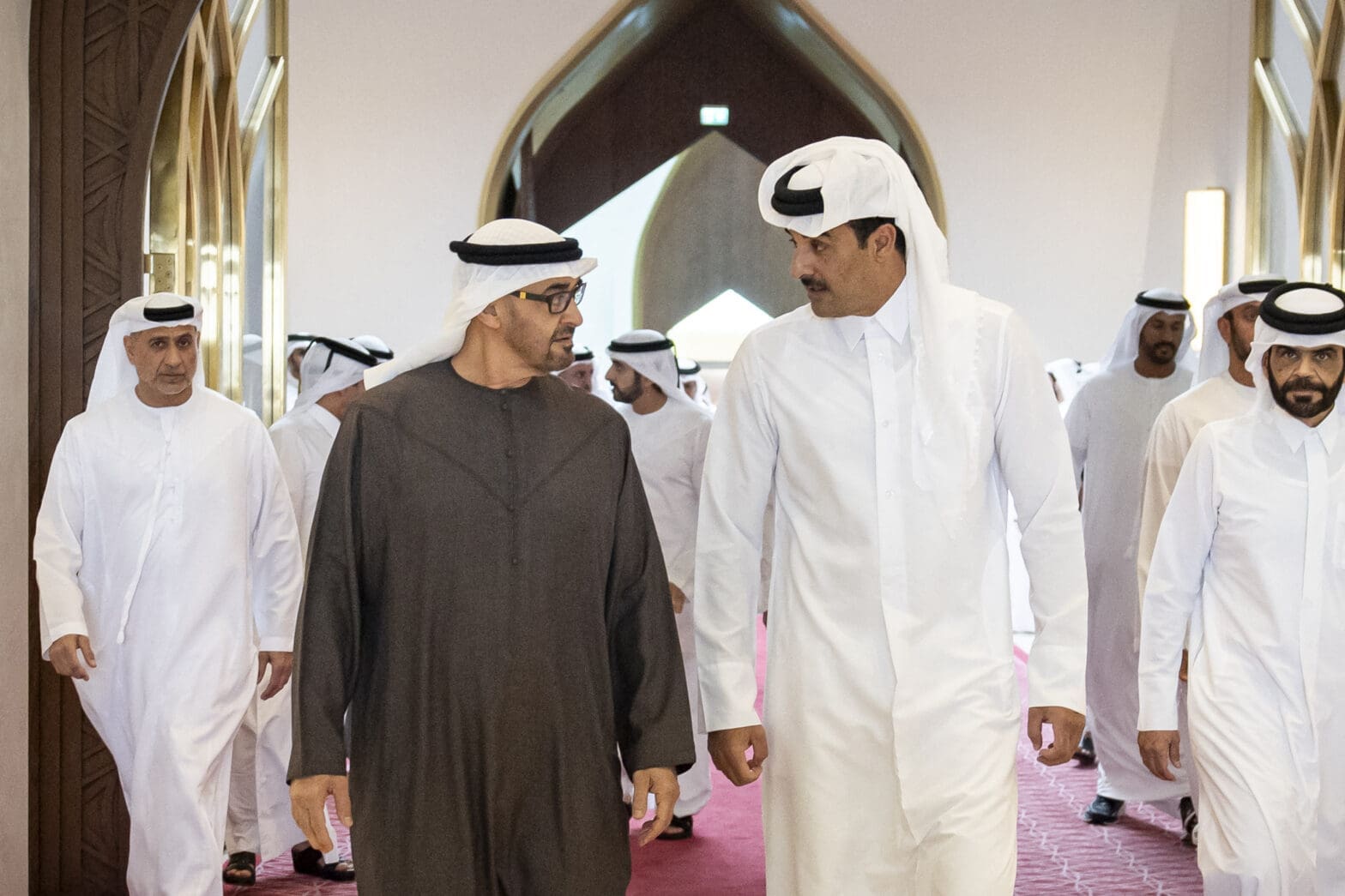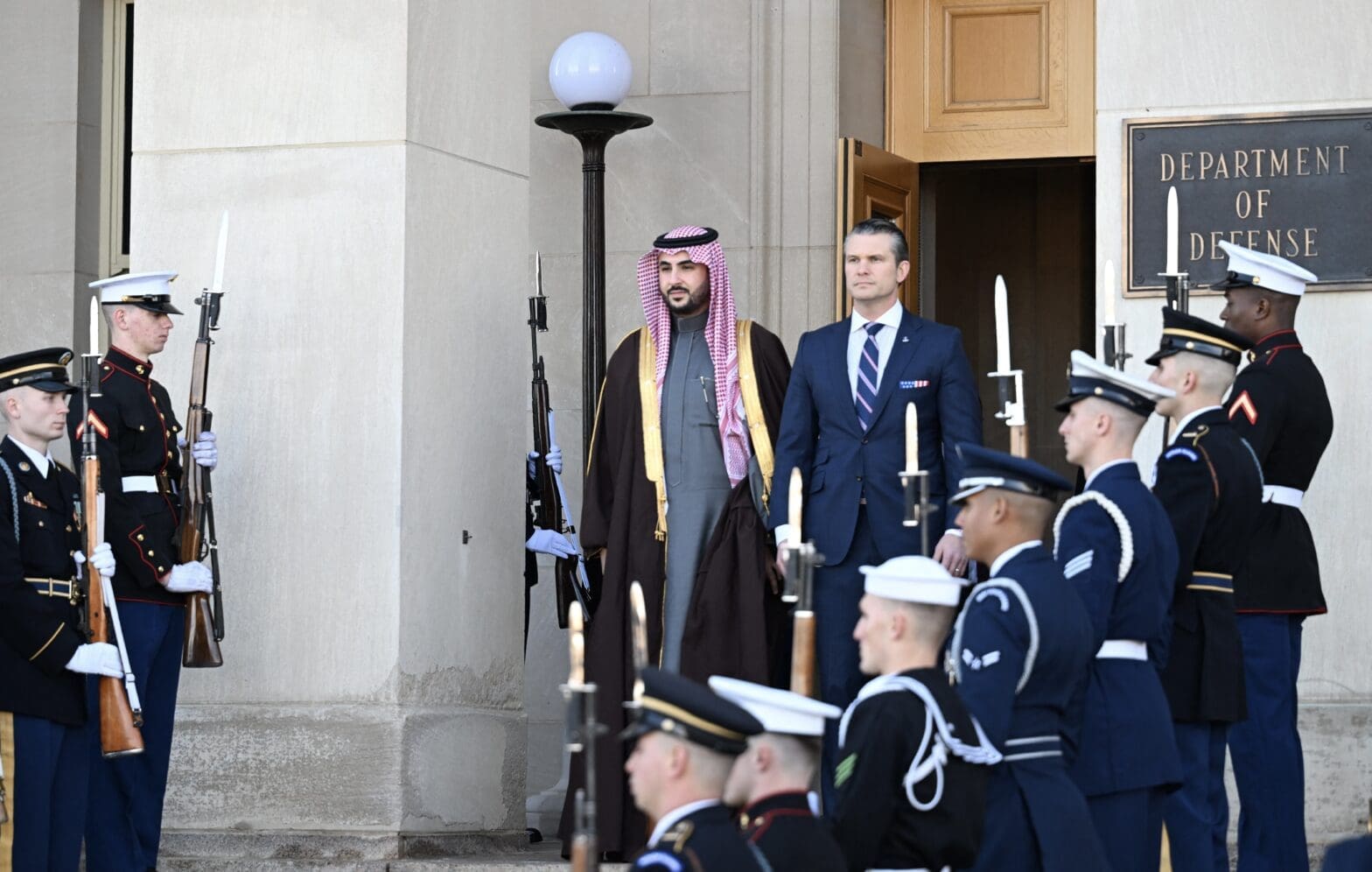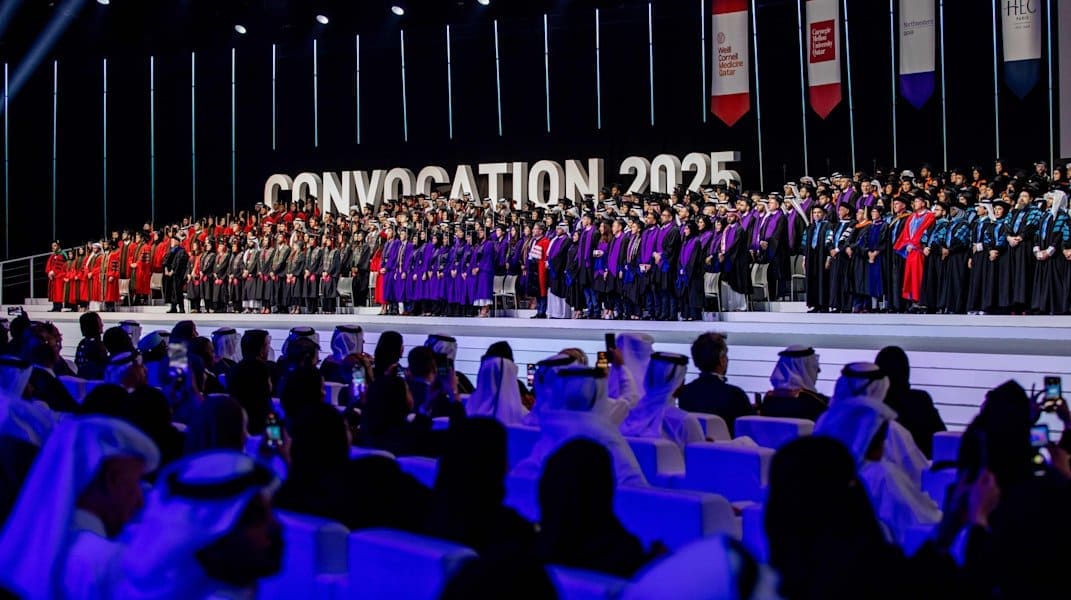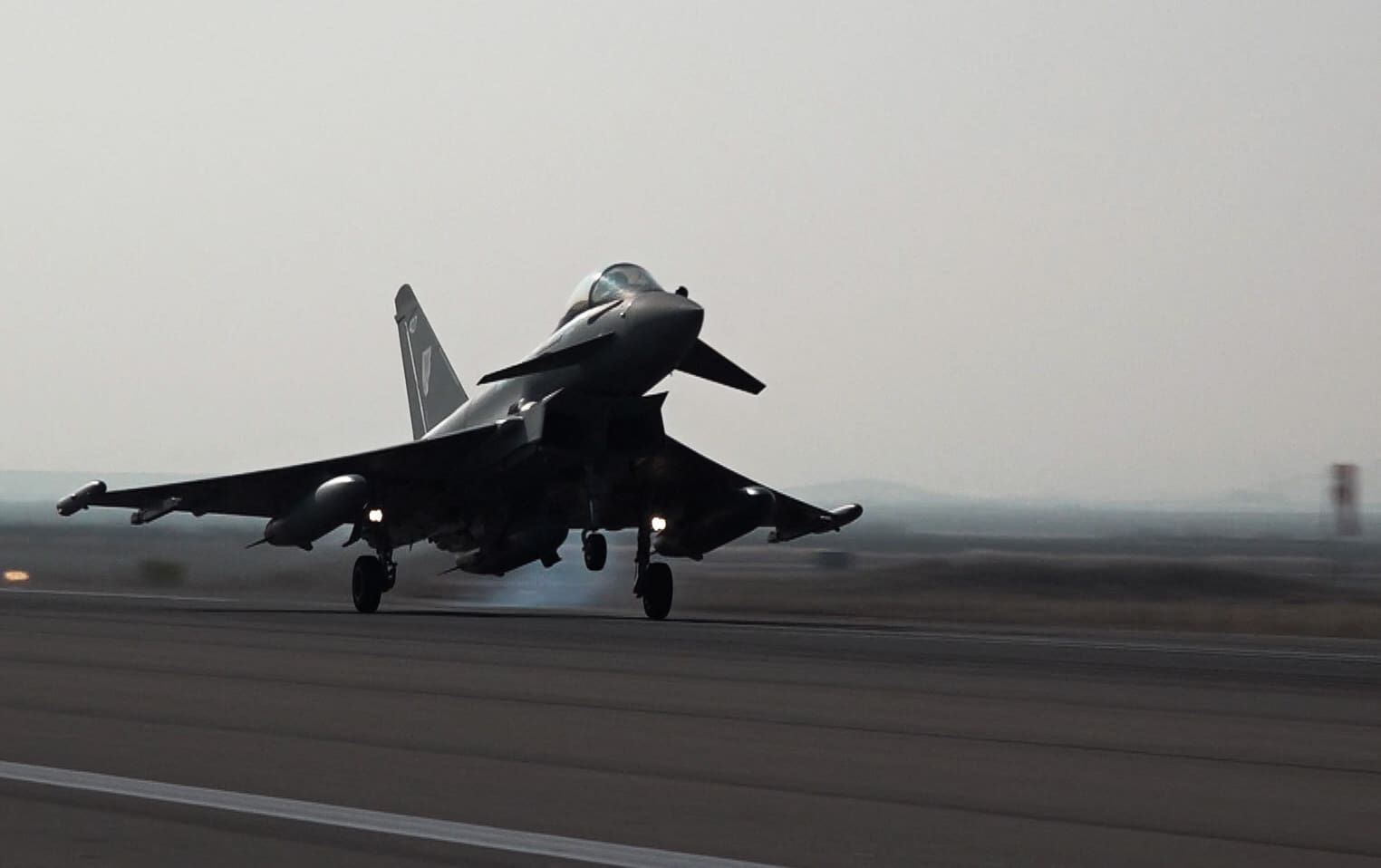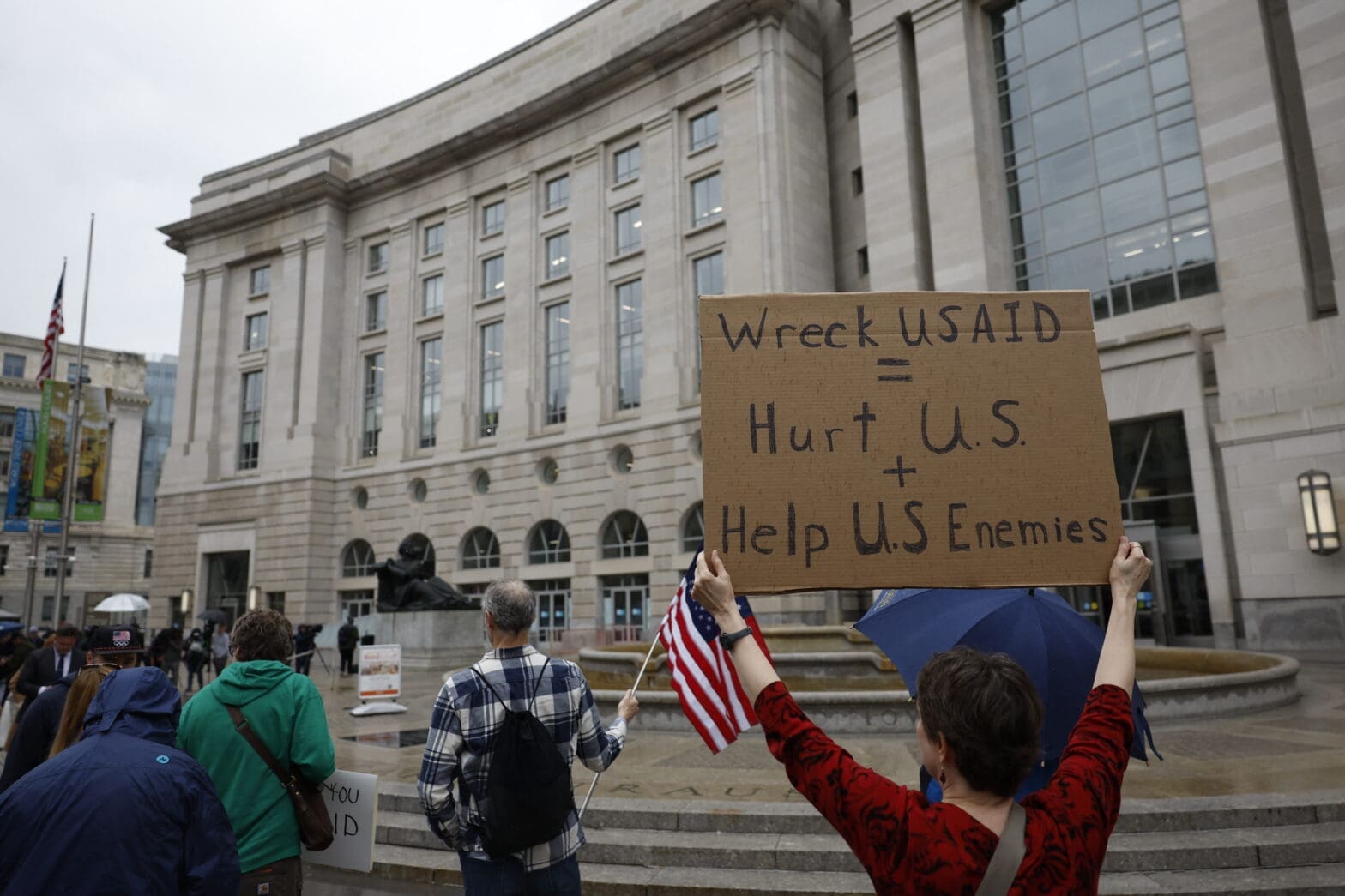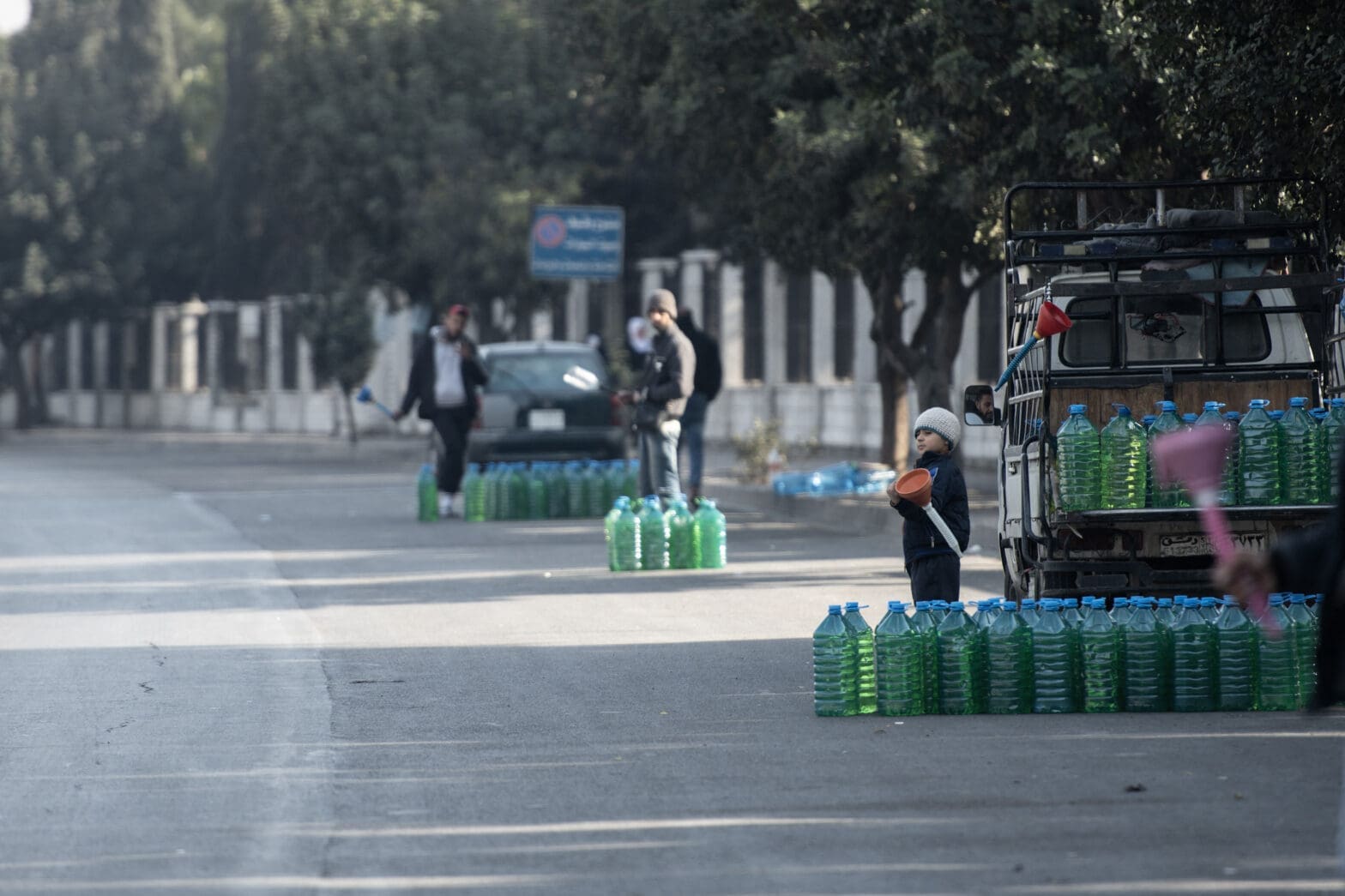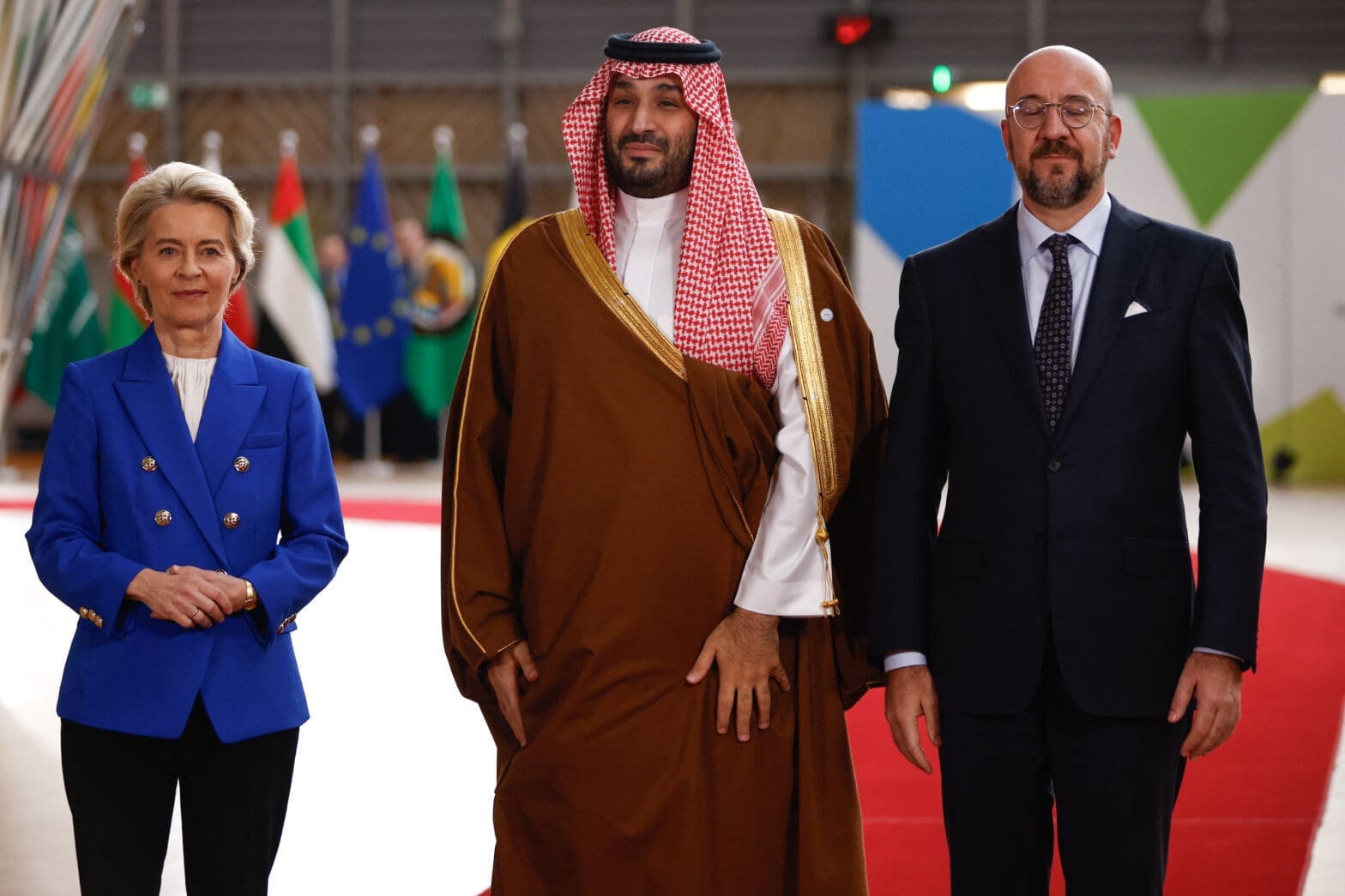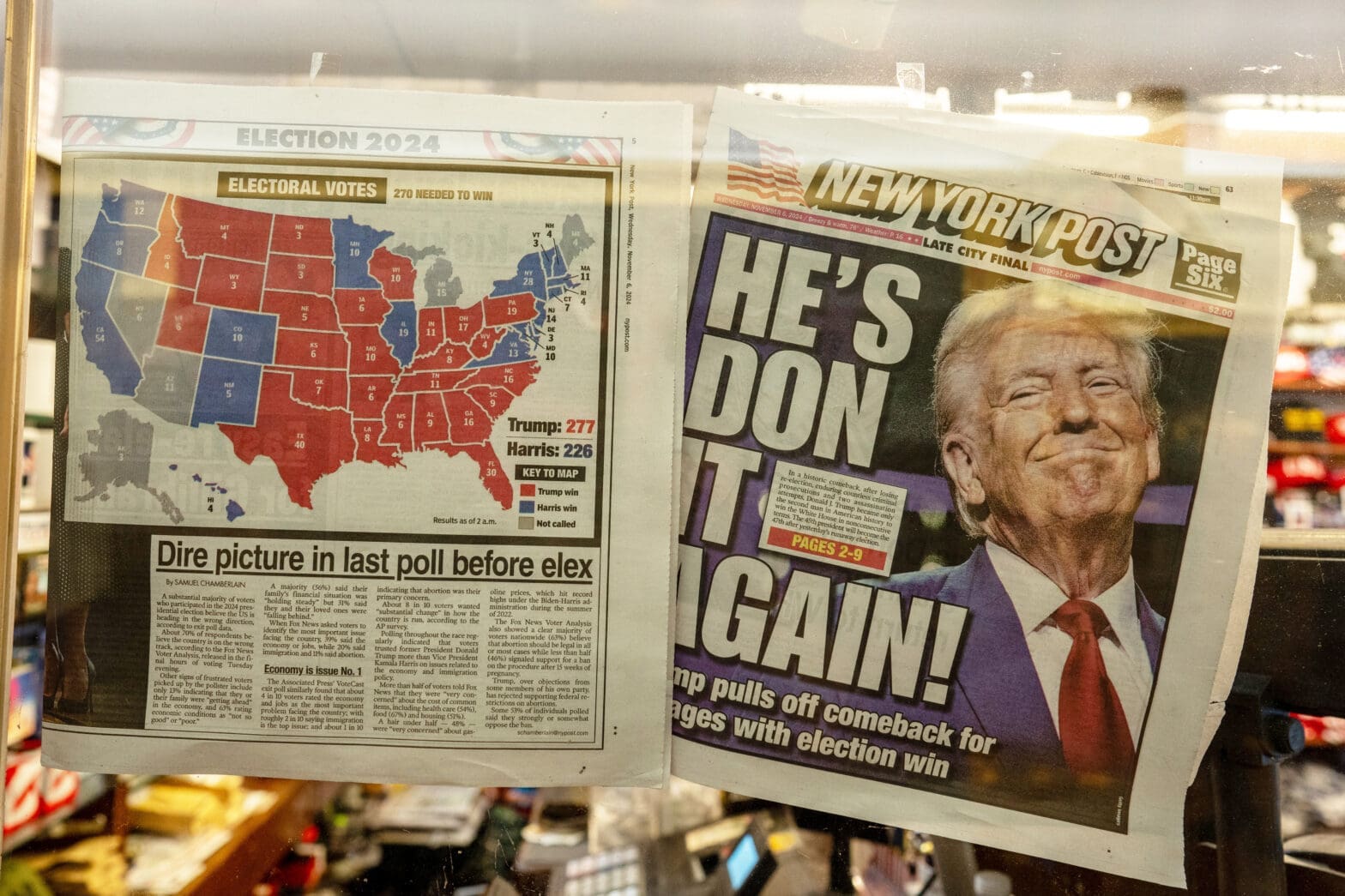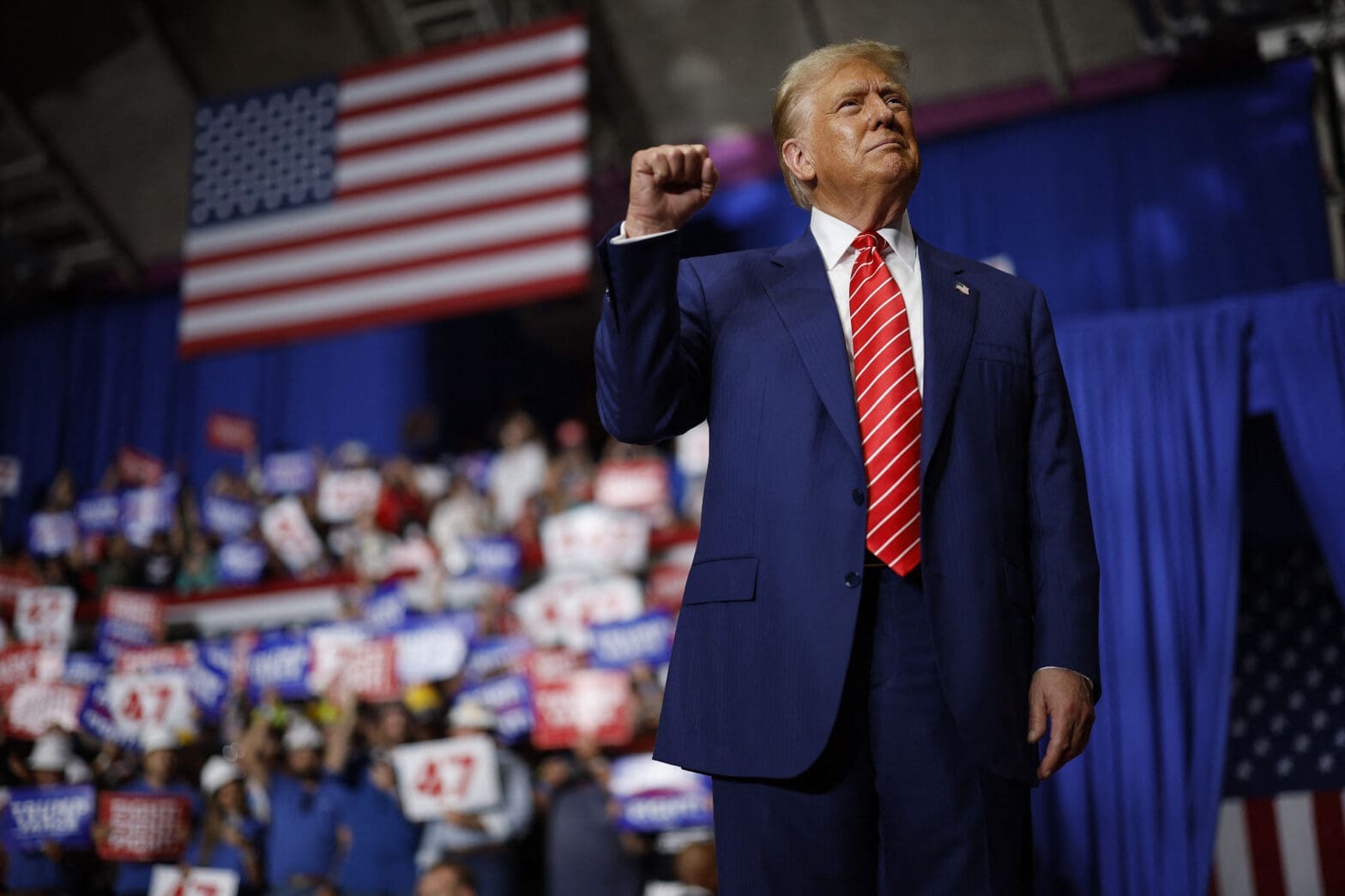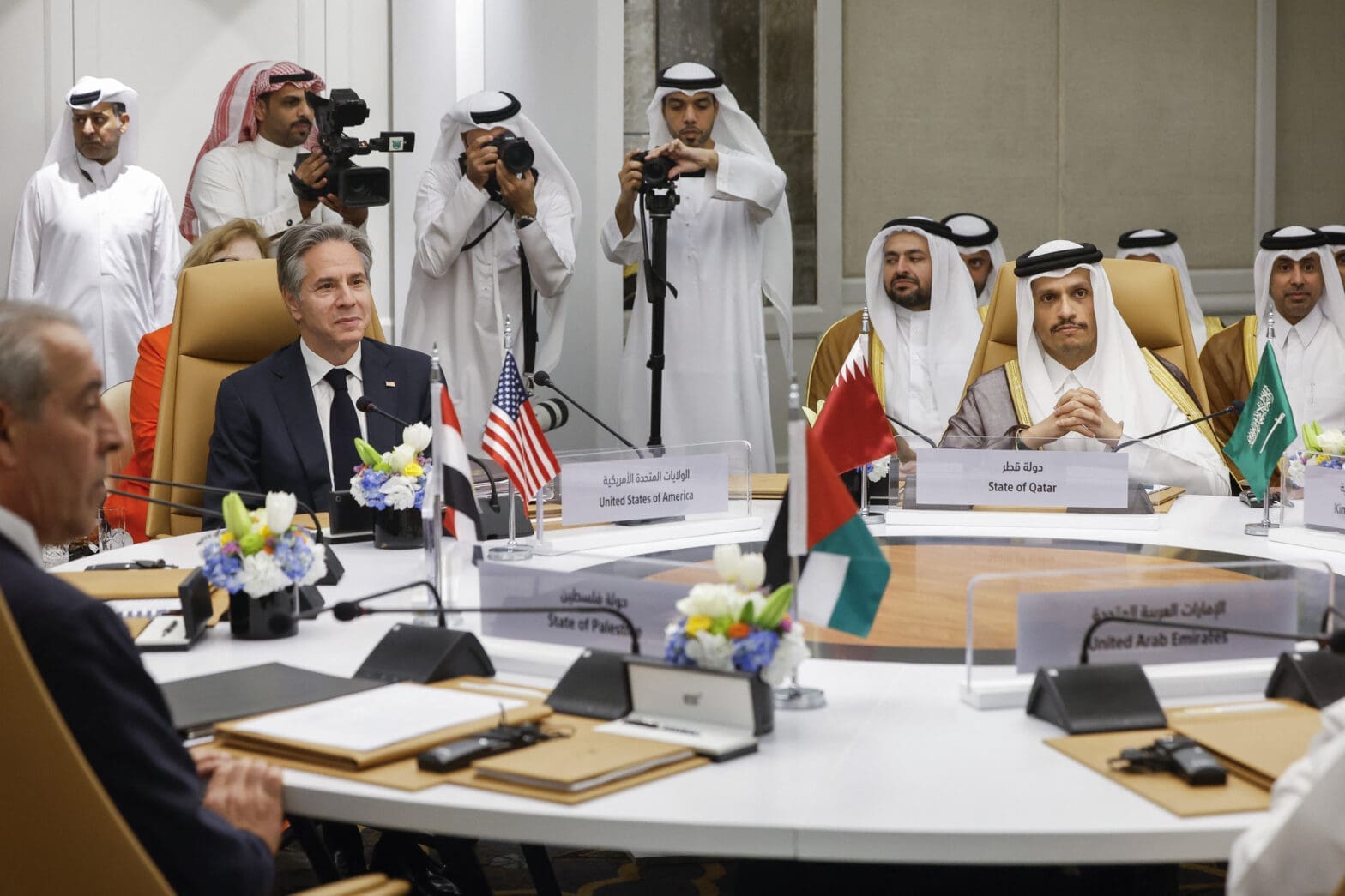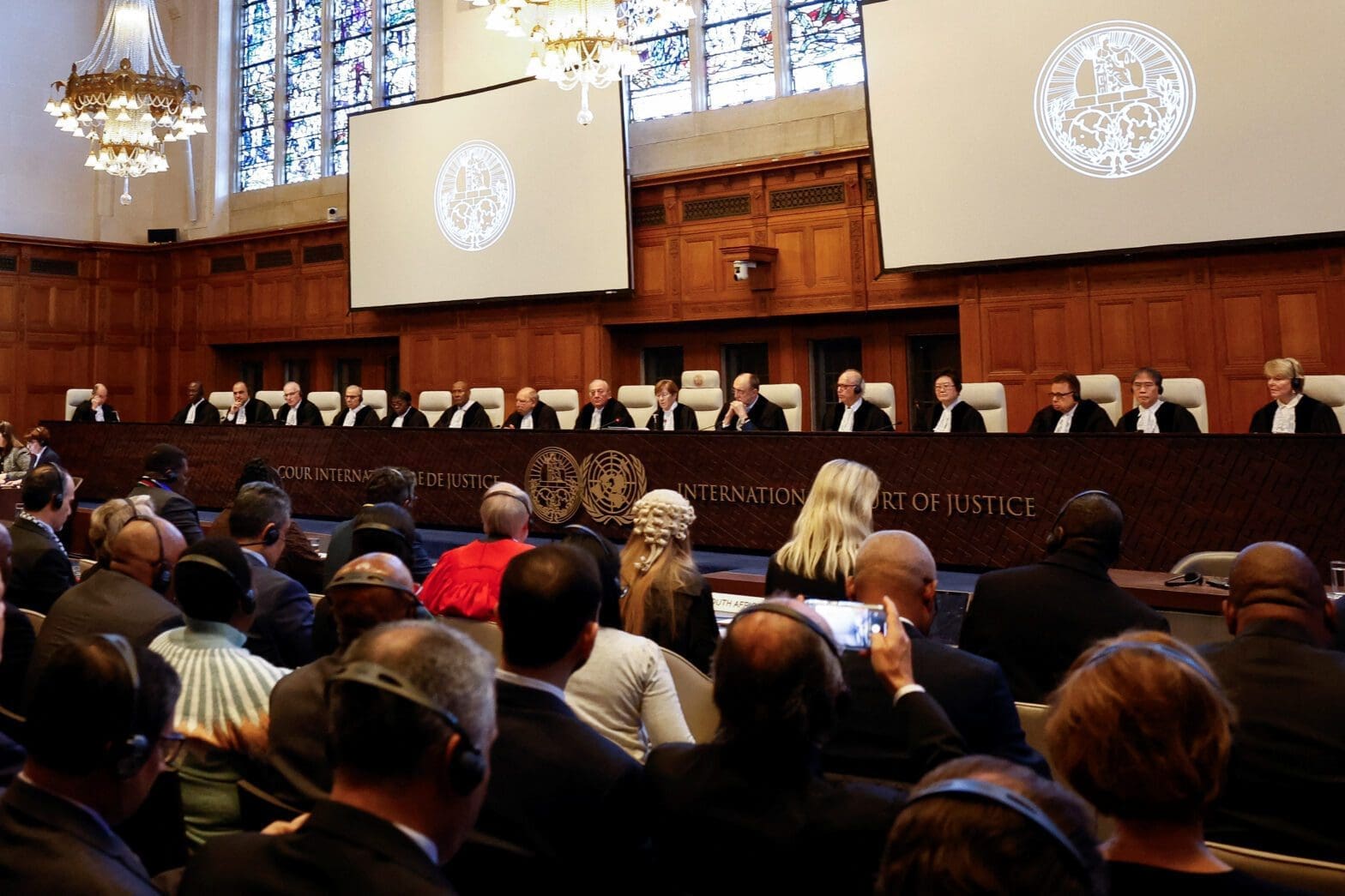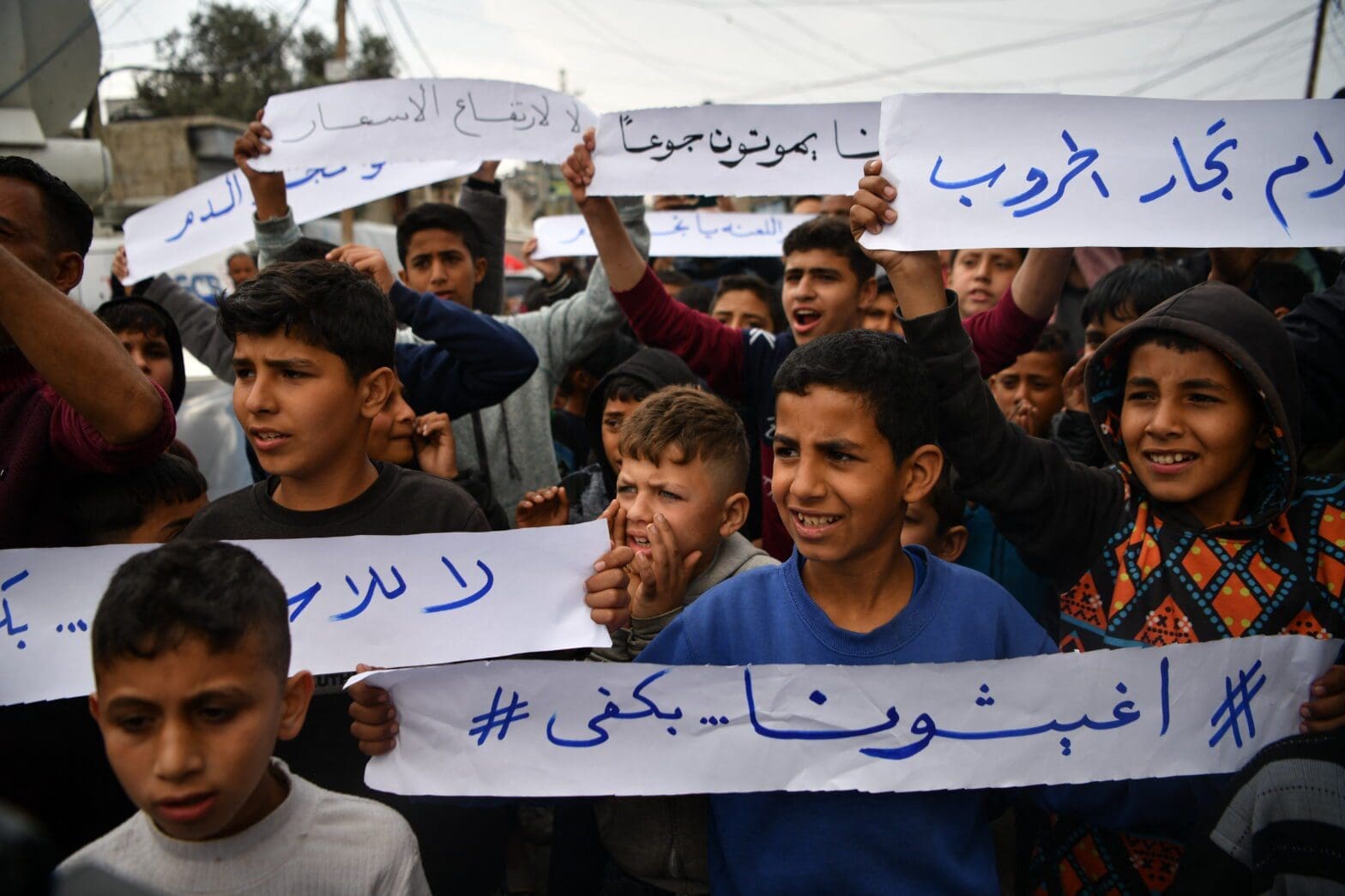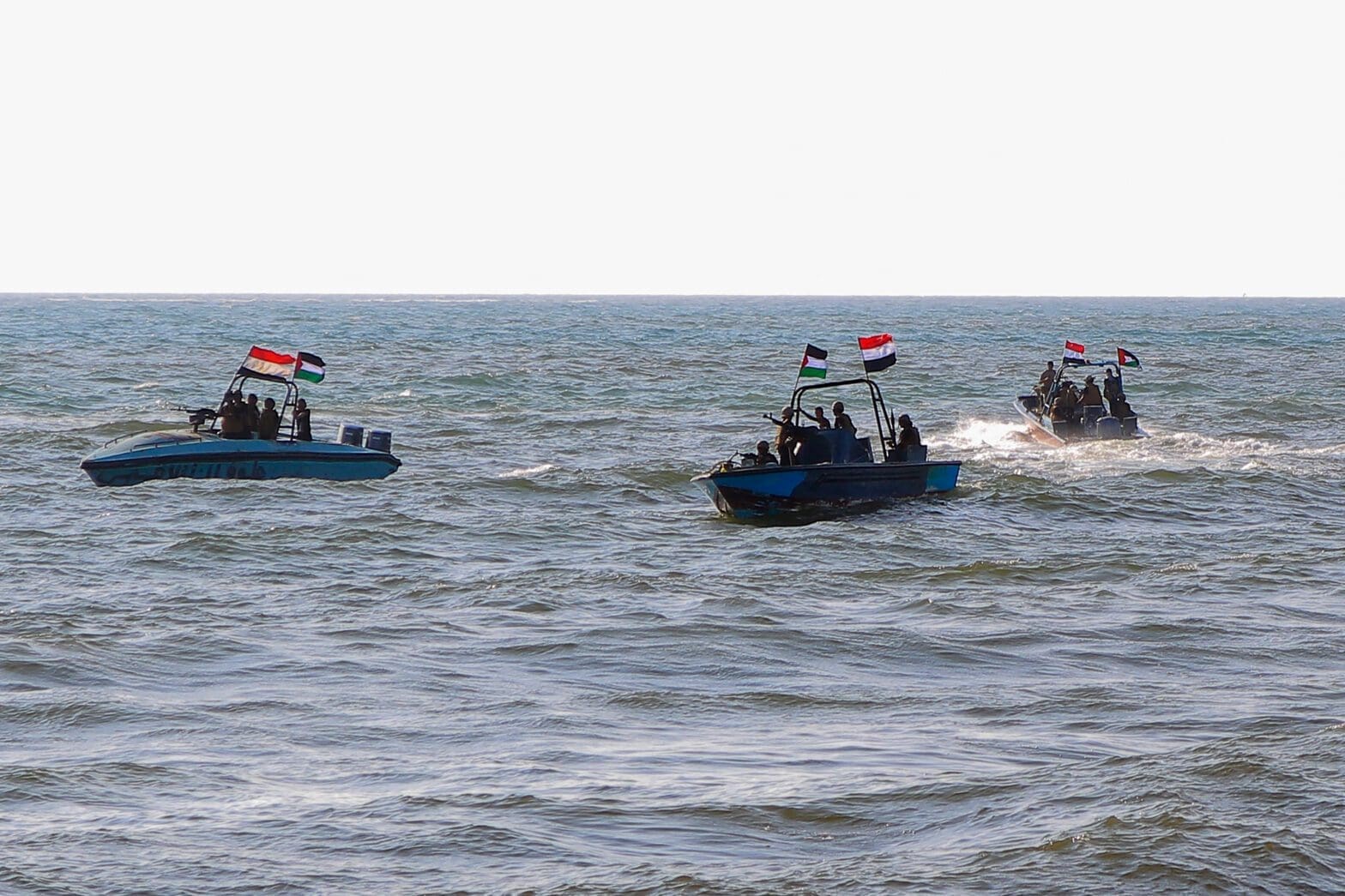When Donald Trump’s 20-point “peace plan” was unveiled in late September, many countries in the Middle East and Europe rallied around it. The reason was not so much the plan’s contents, which justifiably raised eyebrows, but rather that it appeared to be the last, best hope to halt Israel’s appalling military onslaught in Gaza. For more than a month afterward, the U.S. sought a UN Security Council… Continue reading Reconstructing Gaza According to Trump’s Plan Would Be a Disaster
Afkar Issue: U.S. Foreign Policy
With Ethiopia’s GERD Active, Tensions Mount Along the Nile
After years of mounting tensions between Nile River Basin countries over Ethiopia’s plans to build the Grand Ethiopian Renaissance Dam (GERD) far upstream, the project was finally inaugurated on September 9 without a new agreement in place for the distribution of the Nile’s vital water resources. For Egypt and Sudan, who are downstream from the… Continue reading With Ethiopia’s GERD Active, Tensions Mount Along the Nile
Is the United States Set to Re-Engage in Libya?
A quiet visit to Libya by a senior Trump advisor has raised the specter of Washington taking a renewed interest in the North African country—and the question of whether such engagement could help finally resolve the country’s prolonged political deadlock. Massad Boulos, who advises U.S. President Donald Trump on Middle Eastern and African affairs, visited… Continue reading Is the United States Set to Re-Engage in Libya?
As Pressure Mounts, Can Lebanon Handle Hezbollah’s Disarmament?
The recent visit of U.S. special envoy Tom Barrack to Beirut has revived the perennial question of Hezbollah’s fate were it to give up its arms. Three weeks after handing the Lebanese government a letter demanding it take immediate steps to disarm the group, Barrack presented a roadmap for implementation that offers Beirut a window… Continue reading As Pressure Mounts, Can Lebanon Handle Hezbollah’s Disarmament?
Will the Maghreb States Have to Pick Between the U.S. and China?
Growing tensions between the U.S. and China are having a significant impact on the Maghreb region. While not a frontline theater of confrontation, Morocco, Algeria, Tunisia, Libya and Mauritania are increasingly caught in the crosscurrents of great power competition, with implications in the economic, political, security and technological spheres. In response, they have sought to… Continue reading Will the Maghreb States Have to Pick Between the U.S. and China?
What the Iranian Attack on Qatar Means for the Future of Gulf Security
Iran’s ballistic missile attack on the Qatari airbase at Al Udeid was viewed by many international analysts and media strictly through the lens of the confrontation between the U.S., Israel and Iran. Widely seen as a symbolic move, the attack’s lack of casualties allowed U.S. President Donald Trump to pursue his preferred option of de-escalation… Continue reading What the Iranian Attack on Qatar Means for the Future of Gulf Security
How Israel’s Dangerous New Grand Strategy Has Set Mideast on Fire
For more than a decade, Israeli Prime Minister Benjamin Netanyahu warned the world of Iran’s nuclear ambitions. He repeatedly accused Tehran of being on the cusp of acquiring a bomb, condemned diplomatic overtures as capitulation, and vowed Israel would never allow Iran to become a nuclear power. Yet despite the endless threats, leaked war plans,… Continue reading How Israel’s Dangerous New Grand Strategy Has Set Mideast on Fire
The Islamic Republic’s Existential Crisis
Israel’s decision to launch airstrikes on Iran’s nuclear facilities and military should have come as no surprise following a year of devastating setbacks for the Iranian regime and its proxy network in the region. For almost a decade, the two sides have engaged in a shadow war and tit-for-tat military exchanges across several conflict theaters.… Continue reading The Islamic Republic’s Existential Crisis
The Trump Shock Will Drive a Global Decoupling
President Donald Trump’s so-called reciprocal tariffs unleashed a global trade war and sent financial markets tumbling. China is Trump’s stated main target in his quest to restore “fair” trade. But the new tariff policy will have far-reaching consequences—especially on the economies in the Global South and their relationship to the Global North. The new global… Continue reading The Trump Shock Will Drive a Global Decoupling
Trump’s Gulf Visit Marks a Recalibration of Ties
Donald Trump’s return to the Gulf in May, the first overseas trip of his second term as U.S. president, was no normal diplomatic visit. It was a strategic encounter shaped by mutual interests and shifting global dynamics. For Gulf leaders, the visit offered an opportunity to reposition themselves not just as regional actors in the… Continue reading Trump’s Gulf Visit Marks a Recalibration of Ties
Syria Needs Full Sanctions Relief to Truly Rebuild
On May 13, U.S. President Donald Trump announced that he would lift all U.S. sanctions on Syria. The announcement, made during his historic visit to Saudi Arabia, was a miraculous reprieve for the people of Syria, who had been struggling to rebuild their country after a devastating 14-year civil war. On May 20, European Union… Continue reading Syria Needs Full Sanctions Relief to Truly Rebuild
Can the U.S. Keep Its Military Edge in Saudi Arabia?
During U.S. President Donald Trump’s recent visit to Saudi Arabia, Washington and Riyadh inked a landmark $142 billion defense agreement, heralded by the White House as the largest of its kind in history. The agreement forms part of Saudi Arabia’s $600 billion investment pledge for the U.S. economy and represents a considerable deepening of Saudi-U.S… Continue reading Can the U.S. Keep Its Military Edge in Saudi Arabia?
Could Trump’s Attack on Academia Be a Boon for the Gulf?
Prior to Donald Trump’s historic trip to the Gulf seeking investments for the American economy, the U.S. president was busy taking a wrecking ball to his country’s universities and research institutions. The Elon Musk-led Department of Government Efficiency, or DOGE, was decimating everything from medical research to the National Oceanic and Atmospheric Administration, and hundreds… Continue reading Could Trump’s Attack on Academia Be a Boon for the Gulf?
How Trump’s Government Cuts Will Affect U.S. Foreign Policy
Spurred on by Elon Musk and the Department of Government Efficiency, or DOGE, the second Trump administration has embarked upon a campaign of massive disruption within the federal government that will have serious implications for U.S. foreign policy in the Middle East and North Africa (MENA). One of the primary targets is the State Department.… Continue reading How Trump’s Government Cuts Will Affect U.S. Foreign Policy
Trumponomics, Tariffs and the Global Flight From the U.S.
The rise of “Trumponomics” has sharply heightened global trade tensions, economic uncertainty and market volatility. It is no overstatement to say that the U.S. administration’s erratic tariffs and policies risk the dissolution of the “rules-based order” established by the U.S. and the West after the second world war, severely eroding America’s global credibility and geopolitical… Continue reading Trumponomics, Tariffs and the Global Flight From the U.S.
The First 100 Days: Trump’s Middle East Policy Revisited
By any standard of the American presidency, the first 100 days of Donald Trump’s second term have been eventful, to say the least. From the dismantling of government institutions to the imposition of protectionist trade policies to the launching of negotiations with Iran and Russia, the implications of Trump’s early agenda have been far reaching… Continue reading The First 100 Days: Trump’s Middle East Policy Revisited
U.S. Disengagement Spurs Turkish-European Defense Cooperation
As the United States’ long-standing commitment to European security erodes under the Trump administration, the bloc’s defense partnership with Türkiye hit a new milestone in March, when a consortium of Europe’s leading arms companies submitted a formal bid to sell Ankara 40 Eurofighter Typhoon jets. The fighters have seen active service in the air forces… Continue reading U.S. Disengagement Spurs Turkish-European Defense Cooperation
As Europe Adjusts to Life Without U.S. Security Umbrella, Lessons for GCC Abound
The Trump administration’s decision in early 2025 to suspend military aid to Ukraine—resuming it only after Kyiv agreed to negotiate with Moscow in March—marks a turning point in transatlantic security. It has forced Europe to reassess its strategic posture amid a conflict that began with Russia’s 2014 annexation of Crimea and escalated into a full-scale… Continue reading As Europe Adjusts to Life Without U.S. Security Umbrella, Lessons for GCC Abound
Trump is back. Should Gulf States accelerate decoupling from the U.S.?
Eight weeks into the second Trump presidency, the world’s governments—including those in the Gulf—are still trying to make sense of the chaos in Washington. Domestic politics aside, the new administration’s economic policies have sparked fears of a “Trumpcession” amid an escalating trade war and a falling dollar and stock market. Both consumer and business confidence… Continue reading Trump is back. Should Gulf States accelerate decoupling from the U.S.?
Abu Dhabi’s Quiet Engagement in Afghanistan May Ease Taliban Isolation
For nearly a decade, international diplomacy concerning Afghanistan was mainly mediated by Qatar. Yet since the Taliban rolled into Kabul in August 2021, leading figures from the movement have made a string of high-profile visits to another key Gulf powerbroker, the United Arab Emirates. Their warm reception by the Emirati authorities suggests that Abu Dhabi… Continue reading Abu Dhabi’s Quiet Engagement in Afghanistan May Ease Taliban Isolation
Trump’s Aid Cuts Sever Stalwart of U.S. Soft Power in the Middle East
Amid the whirlwind of executive orders and major policy shifts coming out of the White House, President Donald Trump’s decision to freeze the operations of the U.S. Agency for International Development (USAID), which administers most U.S. foreign assistance, threatens to have a wide impact around the world. If prolonged, many programs in countries across the… Continue reading Trump’s Aid Cuts Sever Stalwart of U.S. Soft Power in the Middle East
Is Russia Entering U.S.-Iranian Nuclear Negotiations?
A three-way dance is developing between Washington, Moscow and Tehran over Iran’s nuclear program. Recently, U.S. President Donald Trump sent a letter directly to Iran’s supreme leader, Ali Khamenei, asking to enter negotiations, while indicating to the media separately that the alternative would be military action to prevent Iran from acquiring nuclear weapons. Khamenei responded… Continue reading Is Russia Entering U.S.-Iranian Nuclear Negotiations?
As Trump Imposes Tariffs, What Will U.S. Protectionism Mean for MENA and the Global Economy?
The United States has long been the world’s leading advocate for free trade, promoting it as a means of expanding global commerce and specialization in production that links economies into diversified supply chains. This has led to an unprecedented period of economic growth and poverty alleviation, a period anchored largely in an international rules-based order… Continue reading As Trump Imposes Tariffs, What Will U.S. Protectionism Mean for MENA and the Global Economy?
The Art of Disruption: How Trump’s Foreign Policy is Impacting MENA
Since returning to office on January 20, 2025, Donald Trump has issued 67 executive orders, more than double any other president in American history. Given that some of those orders have serious implications for the Middle East and North Africa, Afkār has compiled views from Middle East Council on Global Affairs scholars to analyze some… Continue reading The Art of Disruption: How Trump’s Foreign Policy is Impacting MENA
Will Trump Remove Syria’s New Rulers from America’s Foreign Terrorist List?
Since 1997, the U.S. State Department has compiled a catalog of organizations it considers foreign terrorists. The FTO list, as it is known, has become a powerful tool in Washington’s “war on terror,” by subjecting parties on the list to the weight of American delegitimization and economic sanctions. Moreover, the qualification and threshold for being… Continue reading Will Trump Remove Syria’s New Rulers from America’s Foreign Terrorist List?
Could the Russia-Iran Comprehensive Partnership Treaty Challenge Gulf Security?
On January 17, the presidents of Iran and Russia met in Moscow to sign a 20-year “comprehensive strategic partnership treaty.” The agreement, which focuses primarily on enhancing trade and security cooperation, comes as each country indirectly confronts the United States in conflicts with Ukraine and Israel, and on the heels of the abrupt toppling of… Continue reading Could the Russia-Iran Comprehensive Partnership Treaty Challenge Gulf Security?
Maximum Pressure on Iran, Minimal Results
Among the top foreign policy issues Donald Trump faces in his second term are the perceived challenges and threats posed by Iran. To this end, Trump revived the “maximum pressure” campaign that characterized his approach to Iran in his previous term. At the same time, hawks in Washington are calling on the administration to support… Continue reading Maximum Pressure on Iran, Minimal Results
Why Trump’s Presidency Could Mean Closer EU-GCC Ties
The arrival of Donald Trump for a second term in the White House raises critical questions for the Middle East. Trump took office just days after a ceasefire deal aimed at ending a catastrophic 15-month war between Israel and Hamas, which had come close to dragging the region into an all-out conflagration. Now the president… Continue reading Why Trump’s Presidency Could Mean Closer EU-GCC Ties
TikTok Is Back, but for Whom?
U.S. users briefly lost access to popular social media platform TikTok earlier this week, following a legislative push to force the app’s Chinese-owned parent company to divest from its U.S. operations. While Donald Trump had endorsed the effort to ban the app during his first term, he recently reversed his stance, signing an executive order… Continue reading TikTok Is Back, but for Whom?
Will U.S. Sustain Pressure on Israel to Implement the Ceasefire Deal?
President-elect Donald Trump appears to have followed through with his promise to achieve a Gaza ceasefire before his inauguration on January 20. The incoming administration succeeded where the Biden administration failed, showing that U.S. pressure on Israel can lead to results. While many dismissed Trump’s threat that “all hell will break out” if the hostages… Continue reading Will U.S. Sustain Pressure on Israel to Implement the Ceasefire Deal?
MENA Outlook for 2025
With the December collapse of the Assad regime in Syria, 2024 came to a close in a dramatic and region-altering fashion. This, along with the numerous other major trend lines and points of conflict, likely makes 2025 a year that will be significant in reshaping the region’s future. Looking forward to what may be coming,… Continue reading MENA Outlook for 2025
Trump Must Focus on Rebuilding a War-Torn Middle East
U.S. President-elect Donald Trump has become the first Republican candidate in 20 years to win the popular vote. His historic win hands him control of the Senate, Congress and the Republican party, along with a strongly conservative-leaning Supreme Court. How will this power be deployed? If we take Trump’s election rhetoric literally, his “Maganomics” agenda will be… Continue reading Trump Must Focus on Rebuilding a War-Torn Middle East
Trump 2.0 and the Gulf’s Strategic Future
President-elect Donald Trump’s first term in office reshaped U.S.-Gulf relations. His approach focused on cultivating personal bonds with leaders of Gulf Cooperation Council (GCC), signing massive arms deals, and for the most part not touching human rights issues. Gulf statesmen mostly welcomed this approach, which provided immediate defense assurances without challenging their sovereignty. However, with… Continue reading Trump 2.0 and the Gulf’s Strategic Future
Trump’s Return and Implications for the Middle East
On November 6, within hours of closing the polls, Donald Trump was declared the winner of the 2024 presidential election in the United States, defeating Vice President Kamala Harris by a wide margin. Trump’s remarkable triumph, which will return him to the White House after his defeat to Joe Biden in 2020, comes at a… Continue reading Trump’s Return and Implications for the Middle East
A Region Under Fire
Editor’s Note: There Are No Winners Here Omar H. Rahman, Fellow and Editor of Afkār, Middle East Council on Global Affairs The Israeli-Palestinian conflict did not begin on October 7, 2023. Decades of military occupation, colonial land theft and systemic deprivation had already pushed Palestinians into a state of constant struggle, laying the groundwork… Continue reading A Region Under Fire
Can China and the U.S. Cooperate in the Middle East?
Cooperation between China and the United States in the Middle East has become a common topic of discussion between academics and experts these days. The two great powers have vested interests in the region that are jeopardized by its chronic instability and the growing threat of regional war. Cooperation between the two should be a… Continue reading Can China and the U.S. Cooperate in the Middle East?
Trump Redux Could Bring in the Law of Unintended Consequences
One hundred days ahead of elections in November, former U.S. president Donald Trump is polling strongly despite the emergence of Vice President Kamala Harris as the Democrat candidate. What would the implications be for us in the Gulf and around the world of a Trump presidency redux? From public statements and his record in the… Continue reading Trump Redux Could Bring in the Law of Unintended Consequences
Gaza War Creates Dilemmas for Bahrain’s Leadership
Four years ago this month, Bahrain joined its ally the United Arab Emirates (UAE) in formalizing diplomatic relations with Israel. After signing the Abraham Accords at the White House on September 15, 2020, Bahrain and Israel opened embassies, signed numerous bilateral agreements, established business contacts and launched direct commercial travel. Yet Bahrain, like other Arab… Continue reading Gaza War Creates Dilemmas for Bahrain’s Leadership
Biden vs Harris on the Middle East: Same dance, different steps
The 2024 US election year has been one of the most tumultuous on record. The past two months have seen a shockingly lacklustre performance from President Joe Biden on the debate stage and his subsequent withdrawal from the ticket, an assassination attempt on former President and current Republican nominee Donald Trump, and the elevation of Vice President… Continue reading Biden vs Harris on the Middle East: Same dance, different steps
How Big a Role Will Gaza Play in the U.S. Election?
One of the great ironies of American politics is that despite the country’s immense power and influence in the world, U.S. foreign policy and international affairs hardly factor into the calculus of most American voters. The 2024 presidential race may be different, however. Since October 7, 2023, the Hamas-led attack on Israel, and Israel’s catastrophic… Continue reading How Big a Role Will Gaza Play in the U.S. Election?
To Strengthen the Palestinian Authority, Stabilize Its Finances
As Israel carries out the latest stage of its devastating military assault on Gaza in the southern city of Rafah, pressure has mounted on its relationship with the United States. Yet it is in the West Bank where the Biden administration’s stalwart support for Israel’s right-wing government may face its most difficult test. A recent… Continue reading To Strengthen the Palestinian Authority, Stabilize Its Finances
The Importance of Diplomacy: How Qatari Mediation is Impacting Gaza
The ongoing Gaza war has showcased Qatar’s strengths as a mediator. Although Doha may not appear to be a major international player at first glance, it has nonetheless proven to be an invaluable actor in the United States’ attempts to end the war. Despite its small size and population, Qatar plays an outsized role… Continue reading The Importance of Diplomacy: How Qatari Mediation is Impacting Gaza
A Succession of Coups Leaves the Sahel Prey to International Rivalries
When Niger’s military rulers decided to put an end to the presence of American armed forces on the country’s territory in May, the move was met with dismay in Washington. Niger, in the heart of the Sahel region south of the Sahara Desert, is host to two major bases the United States had long used… Continue reading A Succession of Coups Leaves the Sahel Prey to International Rivalries
The Middle East in the Wake of October 7: Interview with Tarik M. Yousef Marking 100 Afkār Posts
We at Afkār are delighted to announce that we have reached a new milestone, our 100th post! To mark the occasion, we have recorded and transcribed a special interview with the Director of the Middle East Council on Global Affairs, Tarik M. Yousef. The in-depth interview was conducted by our editor, Omar H. Rahman, and… Continue reading The Middle East in the Wake of October 7: Interview with Tarik M. Yousef Marking 100 Afkār Posts
Washington’s Dilemma over Hamas in Qatar
“Tell Hamas that they must deliver on a hostage and ceasefire deal that would halt the war in Gaza or risk getting kicked out of the Qatari capital of Doha.” That was U.S. Secretary of State Antony Blinken’s message to Qatar in early March, according to a report by CNN five months into Israel’s war… Continue reading Washington’s Dilemma over Hamas in Qatar
Genocidal Starvation in Gaza and the Responsibility of Third-Party States
The extraordinary scene of U.S. military cargo planes dropping 38,000 ready-to-eat meals to beleaguered and malnourished Palestinians in the Gaza Strip, while 2,000 aid trucks queued, stranded, outside the Rafah border crossing with Egypt, recently underscored the desperate plight of Gaza’s civilians and the world’s willful failure to help them. The airdrop represented a tiny… Continue reading Genocidal Starvation in Gaza and the Responsibility of Third-Party States
Regional Diplomacy Amid the War in Gaza
Over the past four months, Middle Eastern nations have been dismayed by the near-unconditional support from Western governments to Israel as it has bombarded and besieged the Gaza Strip and is now ramping up an assault on Rafah—a sliver of territory where more than a million displaced civilians have gathered. As a result, some have… Continue reading Regional Diplomacy Amid the War in Gaza
US in the Red Sea: Security Concerns or Power Play?
The waters of the Red Sea are heating up. In recent weeks, the United States has intensified efforts to clamp down on actions taken by the Houthis, a Yemen-based movement otherwise known as Ansar Allah, to disrupt maritime shipping believed to be connected to Israel as a retaliation for its near-total destruction of the Gaza… Continue reading US in the Red Sea: Security Concerns or Power Play?
Gaza and Its Impact Three Months On – Council Views
Israel’s military campaign in Gaza is entering its fourth month with no end in sight and with the most devastating consequences imaginable for the 2.2 million Palestinian civilians living there, for which Israel is now facing charges of genocide at the International Court of Justice. The effects of this are also being felt well beyond… Continue reading Gaza and Its Impact Three Months On – Council Views
Washington Must Do More to Tackle West Bank Settler Violence
While the world’s attention has rightly been focused on the tragedy underway in Gaza, another deadly drama has been playing out nearby in the occupied West Bank. Since October 7, Jewish settlers have significantly escalated violent attacks against Palestinians, displacing hundreds from their villages and claiming more land for Israel. In the first month and… Continue reading Washington Must Do More to Tackle West Bank Settler Violence




